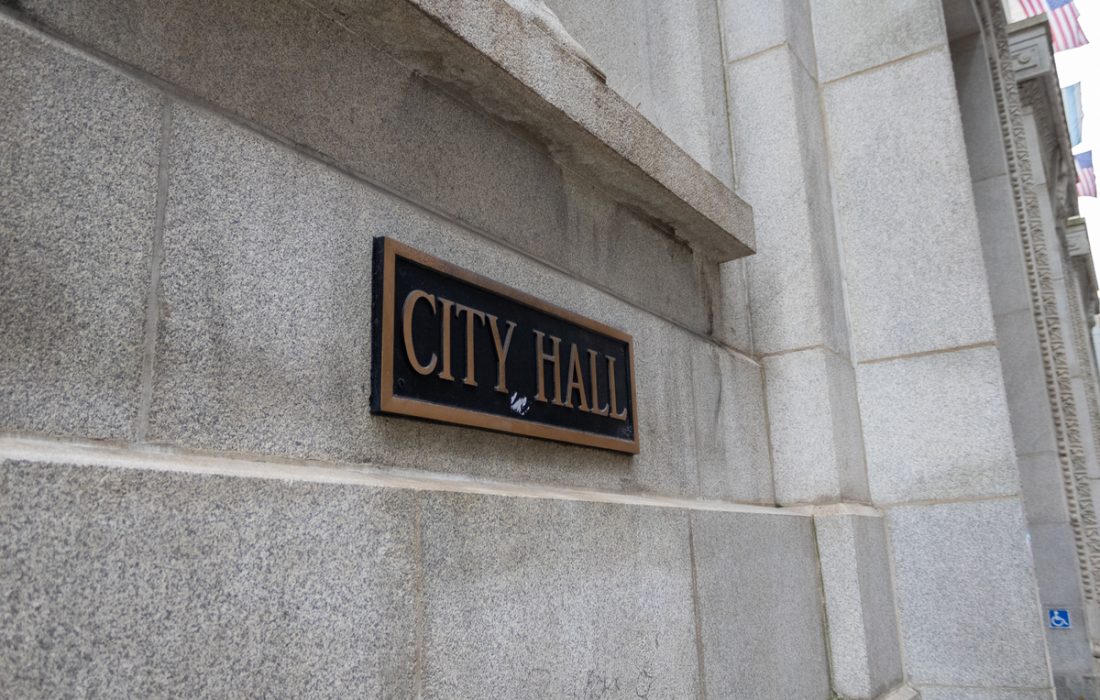Mike Clausen expresses support for the Bring Chicago Home Ordinance.
In the Upcoming Primary, Vote Chicago Home
Michael Clausen is the president of Loyola College Democrats.
A cornerstone of Chicago mayoral campaigns for almost half a decade, the Bring Chicago Home initiative, is finally on the ballot during the upcoming primary. This initiative gives voters the choice whether or not to restructure Chicago’s real estate “sales tax” to lower property costs and create a permanent fund to fight homelessness.
Bring Chicago Home promises to be a major step forward in the city’s approach to homelessness, injecting new life into public housing aid programs while reorienting the tax base to be more efficient and less burdensome for the average Chicagoan.
Despite its slow path to the voters and broad appeal — being first introduced in Lori Lightfoot’s 2019 campaign for mayor — the referendum has proved to be a contentious issue across city politics, even after being approved by a supermajority of the city council last November. Now that the issue is finally on the March ballot, the future of Chicago’s efforts to end homelessness is no longer subject to the agendas of the city’s politicians — it’s up to voters.
The proposal would change the current “property sales tax” — better known as the real estate transfer tax, or RETT — from a flat rate to a graduated system, with properties valued less than $1 million seeing an overall sales tax cut. The RETT is a one-time tax that only applies on property sales.
In Chicago, RETT is collected by the city, county, state and the CTA for a total fee of 1.2%, or $6.00 for every $500 of property sold. Only the city’s portion — currently costing $3.75 of that $6.00 total (0.75% of sale price) — would be changed by the Bring Chicago Home proposal, with CTA and other government funding being unaffected.
If successful, Bring Chicago Home would drop the rate the city collects from $3.75 down $3.00 per $500 of value (0.60%) on around 94% of property sales citywide, saving homebuyers money while increasing the rate on high-value properties. These sales, representing around 5% of property sold in the city according to DePaul University’s HARC Lab, would see a slight rate bump to 2% on value over $1 million and 3% on value over $1.5 million.
With the current average home price citywide sitting at $322,000, only properties sold for well over four times the average home value would be subject for a RETT increase, and even then, the increase would be imposed as a marginal tax bracket, with the original $1 million still taxed at the lower rate.
Despite cutting the RETT on almost all citywide property sales, the proposal is projected to raise around $163 million dollars in additional yearly funding for the city, all of which was earmarked for housing programs and homelessness prevention in the ordinance ordering the referendum last November.
These new funds would be a permanent funding stream for the post-COVID housing recovery policies created by President Joe Biden’s American Rescue Plan, which are currently projected to run dry by 2026, leaving tens of thousands of at-risk Chicagoans in danger of falling behind on rent or back into housing insecurity, according to the Illinois Answers Project.
Bring Chicago Home promises to expand funding for programs that help Chicagoans get, and stay, housed — something absolutely critical at a time when the city’s shelters are, as WBEZ Chicago put it, “maxed out.” The Chicago Coalition for the Homeless estimates that over 68,000 Chicagoans experienced homelessness in some form during 2023. This number represents the latest figure in a worrying five-year trend of increased numbers of people experiencing homelessness in the city.
Even more worrying, this total doesn’t count the over 35,000 asylum-seekers who have arrived in Chicago since August 2022. Citywide homelessness counts estimate that on any given day over 6,000 people in Chicago are unhoused, of which one sixth are unsheltered or living on the street and more than 40% are asylum-seeking migrants, according to the Chicago Department of Family and Support Services.
Lack of support for housing initiatives combined with the influx of demand for housing support has led to long waits for even the most basic services, with thousands crammed into police station lobbies or unused spaces in the city’s airports as the city struggles to work through its eight-month backlog of housing support.
Bring Chicago Home, although by no means a one-stop solution to Chicago’s structural homelessness problems — which are driven by chronic underdevelopment of housing supply, restrictive zoning and century of regressive planning — will go far in helping the City to curb the worst of the ongoing homelessness crisis.
Opponents of the referendum, led by real estate groups including the Building Owners and Managers Association of Chicago, have argued that it will weaken investment in the city and strangle struggling downtown businesses, while others in the business community, like @properties group, have argued that the meager tax hike on the sale of large buildings will be passed onto renters, despite a UChicago analysis projecting price impacts of 0.10% or less citywide.
These groups made headlines last month by successfully convincing a Cook County judge to block the referendum as unconstitutional, weeks after ballots had already begun being cast.
The ruling was unanimously overturned March 6th when appealed by the city, but it comes as the culmination of years-long legal and electoral machinations meant to keep the issue off the ballot, dating back to a 2022 City Council blockade led by former Mayor Lori Lightfoot – who had once made the initiative one of her signature campaign promises.
Now that the issue has, at last, been put back in the hands of voters, Chicagoans will get the chance to make their voices heard under question 1 on March 19. For the future of Chicago housing, its social programs and its most vulnerable citizens, let’s hope we make the right choice.
Get out there, go vote and Bring Chicago Home.
Feature image by Aidan Cahill / The Phoenix
-

Michael Clausen is the Deputy Opinion Editor for the Loyola Phoenix. He is a fourth-year student majoring in political science and history, with minors in Spanish and peace studies. Originally from Kansas, when he’s not writing for the paper, editing stories or clicking through slides, you can usually find him watching the Royals, the Chiefs, or Sporting Kansas City. He enjoys summer days, sitting on the beach and writing about politics.
View all posts
Topics
Get the Loyola Phoenix newsletter straight to your inbox!


